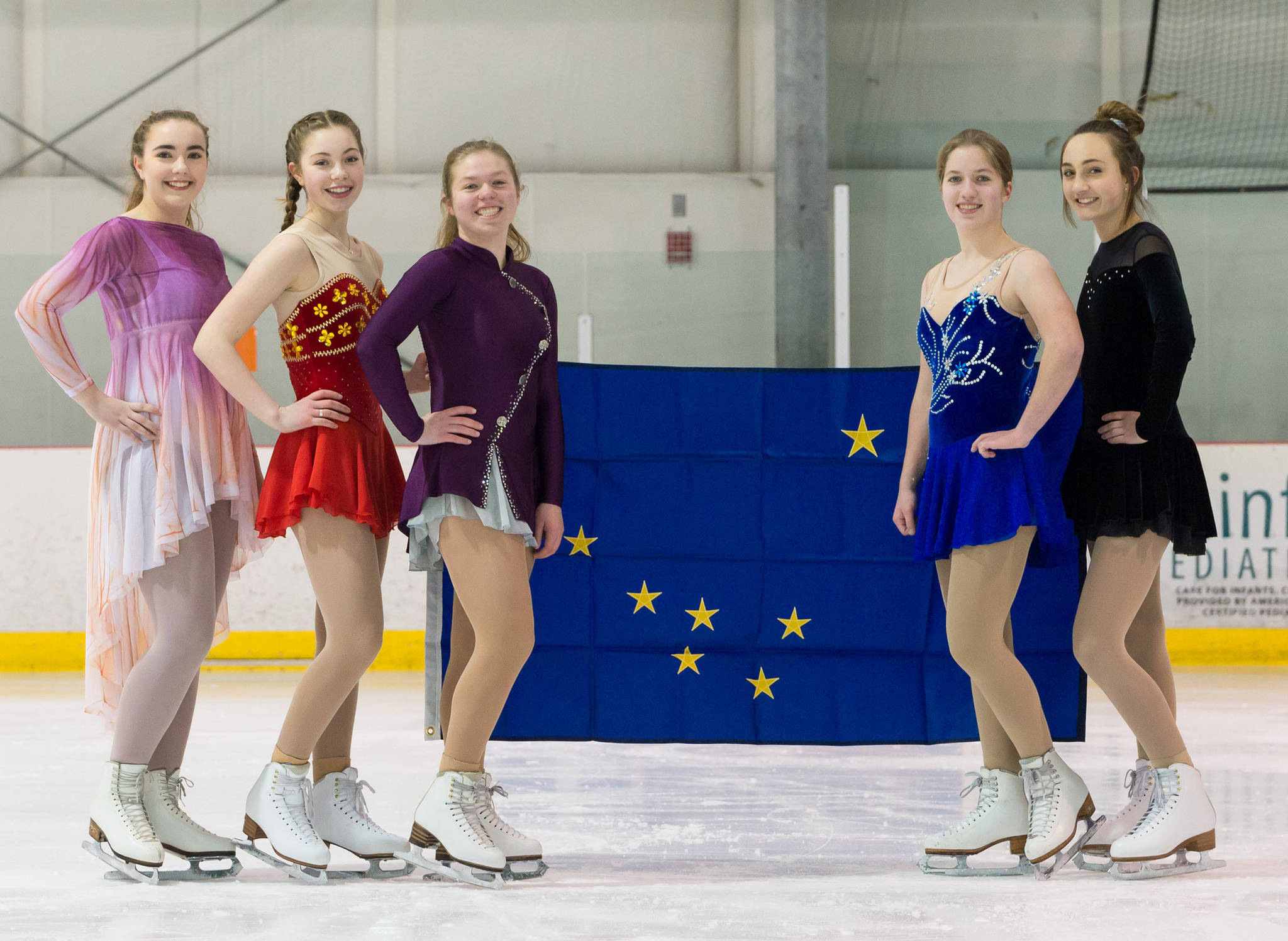Twenty-three Juneau youth will be receiving new winter Team Alaska jackets and hats this weekend.
And given where they’re going in two weeks — the South Slave region of the Northwest Territories, Canada, for the 2018 Arctic Winter Games— they will probably want to keep them handy.
Team Alaska is hosting a “Flapjack Fundraiser” on Sunday to raise money (and hand out Team Alaska apparel) for the two dozen Juneau hockey, figure skating, futsal (soccer), table tennis, showshoe, Arctic sports and volleyball athletes selected for the Games.
The 2018 AWG is March 18-24 in small communities of Hay River and Fort Smith near the southern border of Northwest Territories.
It’s the 25th edition of the biennial international teen sporting competition that has has been held in Alaska on six different occasions. This year’s games will feature 19 different sports and an estimated 1,900 athletes.
Team Alaska will be joined by Greenland, Northern Alberta, Northwest Territories, Nunavik, Nunavut, Sapmi, Yamal and Yukon at the games. The bulk of Juneau’s athletes will be participating in the hockey, futsal (indoor soccer), figure skating and snowshoe events.
Kara Hort, 14, is one of five Juneau figure skaters selected for Team Alaska. She said she’s looking forward to competing and “cheering for the other skaters … supporting them and just having as much fun as I can.”
Figure skating twins Meredith and Katherine Fritsch — who attended the 2014 AWG in Fairbanks — are also going with teammate Emily Bowman. The last games in Greenland did not offer figure skating.
“It’s a great year for JSC (Juneau Skating Club),” JSC coach Pam Leary said. “The skaters that are going have been skating for the club for quite some time. And so they are really developing, they’re a little bit older so they are a little bit more confident in what they are doing.”
Six other regular tenants of Treadwell Arena — Bill Bosse, Cody Mitchell, Greyson Liebelt, Colton Johns, Kayli Lahnum and Kayli Dollard — will also be headed to the games, but instead of figure skating, they’ll be competing in hockey.
On much less slippery surfaces, Taylor Bentley, Elizabeth Knapp and Blake Plummer will try to defend Team Alaska’s junior futsal championship.
In the 2014 games in Greenland, Team Alaska compiled an AWG-best 216 ulus, the AWG equivalent of a bronze, silver or gold medal. Juneau’s Shaylin Cesar, Marlena Romanoff and Kaylah Duncan helped the junior futsal team win the gold ulu.
Affording the games
Jim Powell, who heads up the Southeast Region of Team Alaska, hopes this Sunday’s FlapJack Fundraiser will raise $5,000. Powell hosted a cocktail fundraiser in October that raised $3,000.
The amount is just a fraction of the cost of sending a team to the Games.
The $800,000 it costs to take over 300 Alaskan athletes — Team Alaska — to the Games is no longer heavily subsidized by the state government.
“We received a lion’s share of our funding through the state, through a state grant,” Powell said. “And now that’s turned on its head and now the lion’s share has to come from the other resources.”
The state grant was between $100,000 to over $400,000 depending on the location of the games. The grant was cut in 2016 due to the state’s multibillion-dollar budget deficit. This year, though, the Alaska Legislature agreed to pay for Team Alaska’s member dues of $37,500. But the funding deal required the team to raise over $400,000 in in-kind and monetary contributions.
There’re also registration fees, which help pay for travel, lodging, food and more, that the athletes have to pay out of pocket. Those have increased across the board for all sports, athletes say.
Kyle Worl, an Arctic Sports participant from Juneau, received sponsorships from The Alaska Club and HotGlaa (a wholesaler for Trickster Company) to cover his $2,000 registration fee.
Worl fears if the high cost of the Games continues, it will keep the best athletes from attending. He’s noticed the junior girls Arctic Sports squad didn’t fill out its five spots in time. Worl believes money has something to do with that.
“As an athlete, what is disappointing to me is this is supposed to be for Arctic Sports, Inuit Games … one of the top venues for this sport. You have to be selected, and so it’s supposed to be the top athletes from this sport going to this competition,” Worl said. “But with the $2,000 registration fee, I think it’s becoming also a factor of who can afford that fee.”
Leah Spargo, the only Juneau player on the junior volleyball team, sent out around 50 letters to family and family friends asking for financial support. Surprisingly, it took her only a month to collect all the money.
The response Spargo received from family and friends confirmed what Powell has known all along.
“It’s not so much that you’re trying to sell something that’s hard to sell — it’s not,” Powell said. “The Arctic Winter Games has a great name, it’s a great thing and we had lots of people that experienced it. We just had to reach those folks, which is a lot of work.”
• Contact sports reporter Nolin Ainsworth at 523-2272 or nolin.ainsworth@juneauempire.com.

